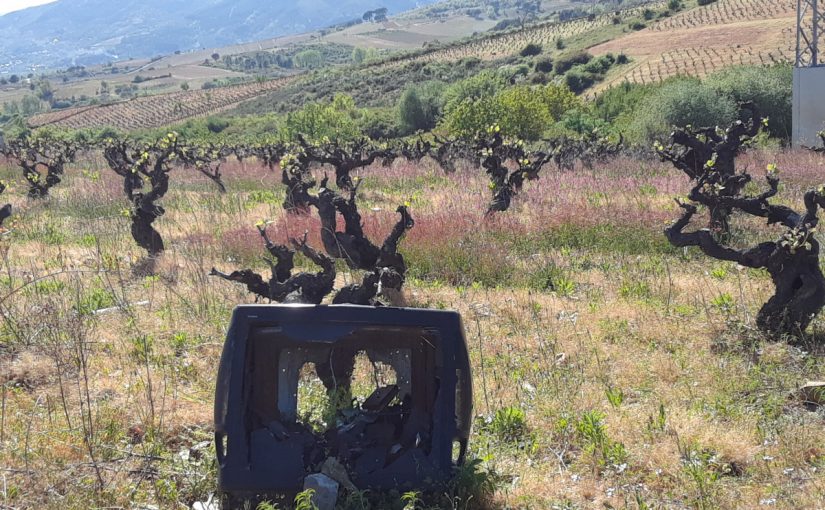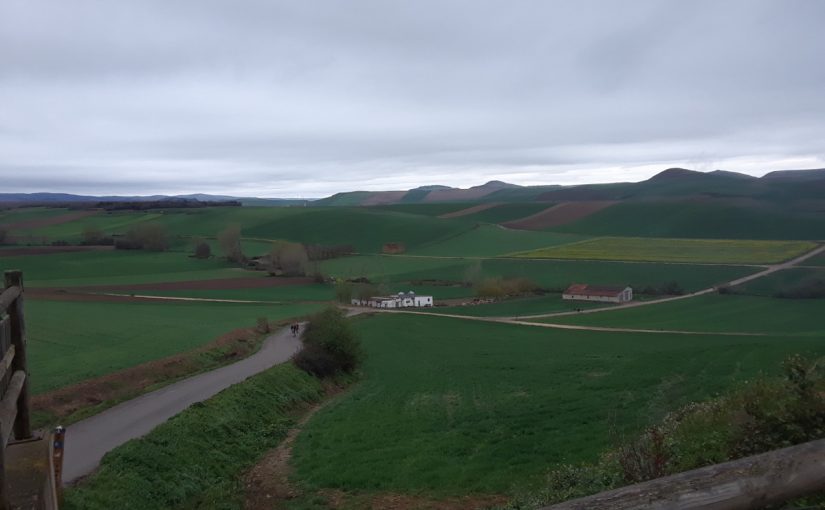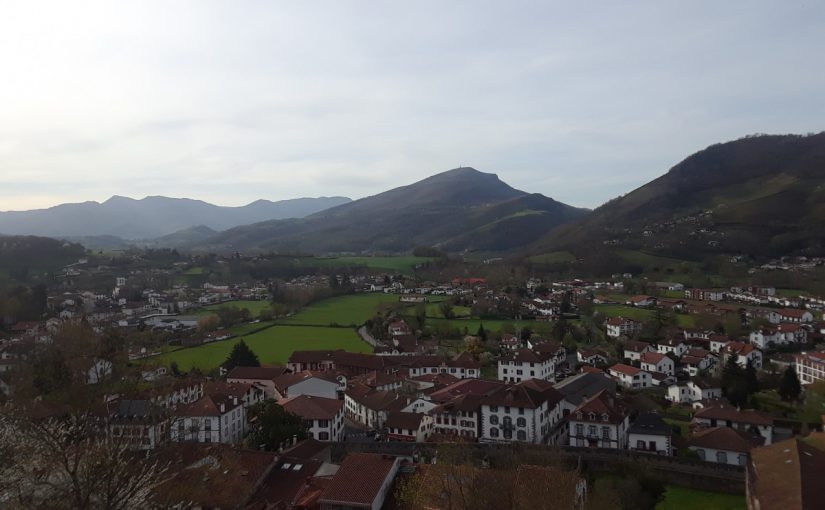I walked with people for the first three weeks. At first with Sara, over the Pyrenees and through rain and the rolling vineyards in Navarra and Rioja. We talked about languages and customs at first, and then everything else two people can talk about. We walked together for eight days. Then with Jacquelyn, her father and Bill; we walked through red mud past a monument that marked a mass grave, and on goat trails and cow pastures, and alongside rust-red barbed wire that marked a military zone, and through the park that stretches into Burgos.
I left Burgos alone. And met a group of vagrants that stopped for a spliff break every 5k and who drank in parks and brought bottles of wine to bars.
I walked with Spencer through the Meseta. He’s a goddamn weirdo. And I love it. He’s got the dork glasses, trekking poles, a bandana around his neck tucked into his sun hat, pants in the midday heat and knee braces on the outside of his pants that cultivate sweat stains. He doesn’t drink and he goes to bed at ten. Somewhere in his parent’s house there is a whole chest full of his Boy Scout Merit Badges. He eats plain yogurt. Then he talked to me about his past life as a rockstar. He toured across the U.S., did coke in New York til the sun rise, loitered in parks like we do now to make sandwiches and smoked cigarettes. He went on tour with EL VY and Matt Berringer from the National knew his name. We always walked straight, always the wheat fields on one side and the highway on the other, always with the sun on our left. Always through ghost towns whose names mean nothing to me or anyone who does not live in them. He saved me from boredom in the dulldrums of the Meseta. We split up outside of Astorga.
I walked with an Italian and some germans up the windy skree to Foncedabon.
Then I walked on my own.
I slip out the door of the old church I slept in before the other pilgrims and just as the sun is rising. Outside the mist clings to the mountain and sun smoulders red as if through smoke and the stone walls on steep the slopes look bombed out and the ruins and red clouds paint a picture of brimstone and the end of times. My joints creak as I trek the two kilometers up to Cruz de Fierro and I stop once to look as the sun passes through a cobble arch and the clouds swirl in the valley.
The tiny iron cross perched on the telephone pole log, stuck in the pile of rocks that marked a pagan site of rituals is the reason I stayed on the Frances route. People bring small rocks from home and leave them at this high point to symbolize letting go of their burdens. I squat on the pile of stones and look at the pictures and letters from and to loved ones that thousands of people have set down on this pile. I cry for the desperation that drove people up this hill, for the small pictures that symbolize the loss of life and the repercussive destruction the vacuum of death creates. I did not bring a stone. But I pull out a letter from a woman who I love and no longer talk to and place it under an oblong stone. The words of an annoying yoga guru I met along the way come back to me, “Our subconscious needs rituals in order to be convinced.” I stayed on the Frances mainly to come to this place, and I have walked 400 miles and up this mountain 1500 meters above the sea, to leave a letter under a rock.
I walked 50 kilometers that day, bouncing down rocky trails and on the roads in and out of Ponferrado, past estates with Ferraris and private tennis courts. I did not see many people on the Camino, pilgrims or locals, past two in the afternoon. That day was no different. The last five hours of my walk took me through vineyards devoid of shade and I only saw two men on tractors.
Boredom is like darkness. In the first hours of walking alone I feel claustrophobic as the world shrinks into my head and there are no screens or people to pull me out. I think about goals and logistics in my life: where I want to live, who I want to date, what kind of job I will settle on. Then I sing for a bit. Then I imagine that I am having conversations with people in my life, usually women that I have been romantic with. I hash and rehash arguments until I end up talking to myself out loud. Then I sing again. Or twirl a stick as if it were a sword or a baseball bat. Then, as with darkness, I adjust to boredom. I just stop paying attention to my thoughts. And when something or someone finally pulls me from my head it feels like getting rudely awakened by fluorescent lights.
That day, in the vineyards, I sang the same song for twenty minutes. It’s called the “Work Song” by Dan Reeder, and it only has two lines of lyrics: “I got all, all the fucking work I need//Oh I got all, all the fucking work I need.” By the time I got to an albergue Villafranca I briefly forgot how to speak to other humans. The hospitalera was from the States, but it took me a minute to remember how to ask for a bed. I imagined my skull as a crock pot and my brain as chili that had simmered in the sun for an entire day.
I walked late into the afternoon several times after that day.


